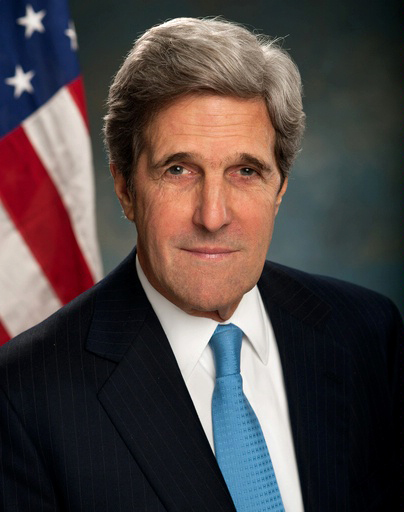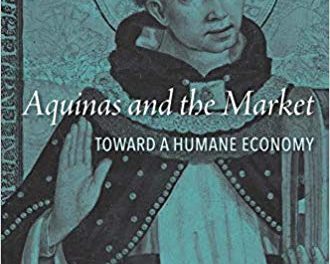Today was an exciting day for those of us in interested in faith and public life. Secretary of State John Kerry spoke in Washington D.C. at the State Department’s Launch of the Office of Faith-Based Community Initiatives. Dr. Shaun Casey, who will lead this charge within the State Department, also spoke, as did Melissa Rogers, Director of the White House Faith Based Office of Neighborhood Partnerships. I think this work is fantastic, for lots of reasons. But one of the things that I find particularly exciting is that Secretary of State John Kerry has explained the continuing relevance of the academic study of religion. At a time when so many college professors are frustrated by the consumerist attitude to education present among students, parents, and administrators, here is the highest diplomat of our country telling us that our jobs are valuable and that the skills of critical thinking and compassion we instill in students are exactly what the world needs. Here’s how Kerry put it:
If I went back to college today, I think I would probably major in comparative religion, because that’s how integrated it is in everything that we are working on and deciding and thinking about in life today.
“Integration” is such a hot buzz word in curricular discussions these days, but I think Kerry is right on here when he reflects on how the study of religion provides a strong foundation for helping people to think about human rights, dignity, justice, and conflict in a realistic, grounded, historical, and thoughtful approach. Kerry goes on to say:
So we need to recognize that in a world where people of all faiths are migrating and mingling like never before, where we are this global community, which we always talk about, we ignore the global impact of religion, in my judgment, at our peril.
Kerry explained that the Office of Faith-Based Community Initiatives at the State Department is charged with engaging more closely with faith communities around the world. This is an important development for diplomacy. It means that we are coming to appreciate more and more the ways that religious communities shape culture and influence local and global movements. In our efforts to understand what is going on in other parts of the world, we need to partner more and more with the religious communities. It is particularly important that we come with a desire to learn, to listen and to engage. We need to understand the complexity of religious communities and appreciate diversity within religious communities. Kerry’s speech today modeled humility before the other, and I was glad to hear him emphasize the importance of engagement with communities instead of our agenda for those communities. Here’s another excerpt:
Engagement – the engagement that I’m talking about is a two-way street. Our job at the State Department is not just to proclaim or to stand up and pontificate about the things that we want. We have to listen to people about the things that they want. And everybody here today has played a valuable role in promoting the development of countries or preventing conflict, advancing human dignity all across the globe. So we launch this office with a clear intent to keep our door open and to work as cooperatively as possible with all of you….
I am genuinely excited about the possibilities of this. Around the world, from Egypt to Ethiopia, from Peru to Pakistan, religious leaders every day are taking on some of the toughest challenges that we face. They’re healing communities. They’re providing counsel to families. They’re working in partnership with governments for the enduring health of our planet and its people….
No one would sit here today, or anywhere else, and suggest that we’re doing such a good job everywhere that we don’t need to bring more people to the table. It is clear, with the numbers of failed states and failing states and growing youthful populations around the world who feel disenfranchised and disconnected and unable to find jobs or get the education they need, we have work to do together and we need everybody at the table. And that’s what this is about.
Kerry then turned the microphone over to Dr. Shaun Casey:
Mr. Secretary, several years ago, you and I started a conversation about the rich, diverse, and complicated public implications of religious belief and practice. At that time, some were claiming that religion poisons everything, while others were saying that religion would save and solve everything. You knew, however, that the reality was somewhere in between…
I remember thinking at the time how unusual it was for a public figure to see the potential in and the power of religious groups tackling extreme poverty, convincing people to combat global climate change, fighting for global human rights, mitigating conflict and building peace, even at a time when others focused on those religious folk who committed acts of violent extremism, perversely claiming justice in the name of their own faith. From that day forward, I admired your willingness to defy the conventional wisdom that dictated religion was a purely private, personal choice, and thus communities bounded by faith must be entirely left outside of discussions of policy. That is why, today, engaging these communities in the context of policy has always struck me as being a matter of very great and deep importance. Let me briefly describe why we are expanding religious engagement and how we will go about doing that engagement…
The answer to the “why” question is straightforward: As religious leaders and faith communities shape their environments, they also have an influence and shape our own foreign policy concerns here in the United States. It’s essential for the United States to understand them and to bring them into our diplomacy and development efforts.
And finally, Melissa Rogers explained, in part:
The potential for religious communities to spark both positive and negative movement makes it essential for the United States to understand these communities and to engage with them. As the State Department does its work around the world, it must have a firm grasp of these dynamics and it must know how to address them in ways that are informed and intelligent.
At a time when many are frustrated by the lack of religious literacy in mainstream U.S. culture, here are some folks who “get it.” This is just the kind of cheerleading some of us need as we rev up for another academic year. If you are teaching undergraduates this year, have you thought about whether your syllabi and reading lists are adequately preparing students to meet these transnational interreligious multi-faceted challenges? Would your class help students to have a “firm grasp” of how religious communities are shaping political movements at home and abroad? Would your class help students to “know how to address them in ways that are informed and intelligent”? Maybe we should return to these learning outcomes in December and assess ourselves.
For readers who want to know more about this announcement, you can check out the State Department page. Here’s more on the U.S. strategy on religious leader and community engagement:
1. Promote sustainable development and more effective humanitarian assistance. Religious leaders and faith-based organizations often serve as decision-makers at the community level and oversee development and humanitarian efforts in their communities. By working in partnership with such leaders and designing programs with the religious context in mind, U.S. foreign assistance efforts can become more effective and sustainable.
2. Advance pluralism and human rights, including the protection of religious freedom. Building on current initiatives, the Administration will increase efforts to engage a diverse spectrum of religious leaders on the advancement of universal human rights, promoting core U.S. values like respect for the human rights of members of minority and marginalized groups, pluralism, tolerance, and sensitivity to and respect for the beliefs and traditions of others.
3. Prevent, mitigate, and resolve violent conflict and contribute to local and regional stability and security. In its efforts to break cycles of violent conflict and mitigate crises, the U.S. Government will work with religious leaders to address both religious and non‑religious causes of violence and support their ongoing initiatives to build peaceful societies.
I offer my thanks to everyone involved in the creation of this office. Best wishes in your work. I’ll do my best to prepare the next generation of diplomats, public servants, and taxpayers who share your vision of the value of these partnerships.



